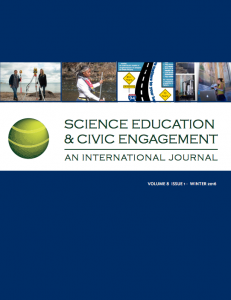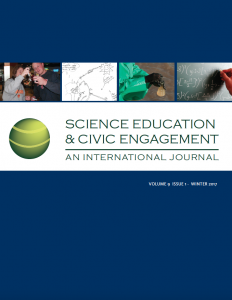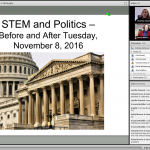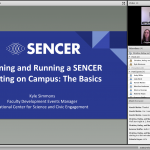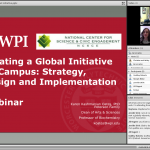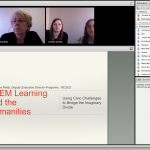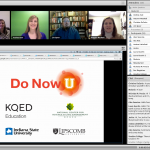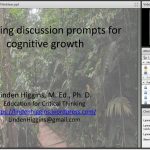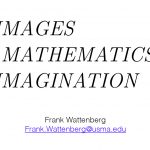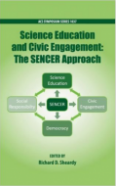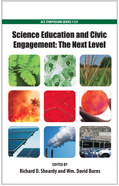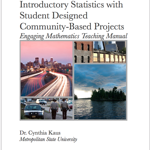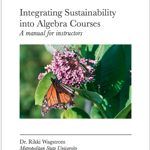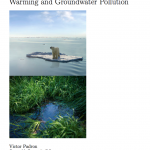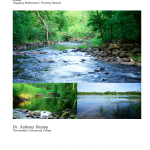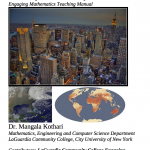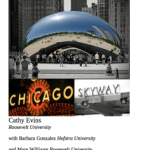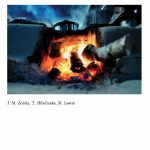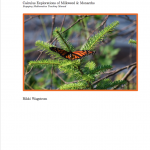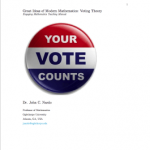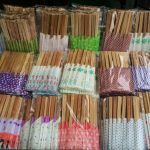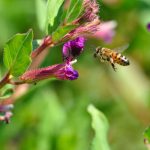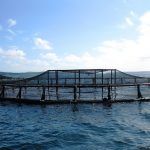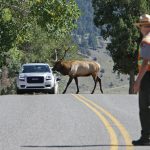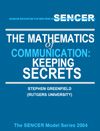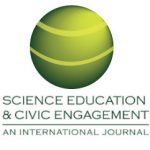Learn Through the Universe: Stories of Scale
This great web resource for illuminating scale was developed by the late Mercedes Talley
Learn moreScience Education and Civic Engagement: An International Journal
The Journal explores constructive connections between science education and civic engagement that will enhance both experiences for our students. The Journal focuses on using unsolved, complex civic issues as a framework to develop students’ understanding of the role of scientific knowledge in personal and public decision making, along with examining how such knowledge is embedded in a broader social and political context. In addition to examining what students learn, we also investigate how this learning takes place and how it can be evaluated, documented, and strengthened. By exploring civic questions as unsolved challenges, we seek to empower students as engaged participants in their learning on campus and as citizens in their communities. Since many pressing issues are not constrained by national borders, we encourage perspectives that are international or global in scope
A call for submissions to the Summer 2020 issue of
Science Education and Civic Engagement: An International Journal
Teaching Through COVID
The COVID-19 pandemic has created a simultaneous crisis in health, society, and education. The SENCER community—with its focus on scientific understanding, civic engagement, and innovative pedagogy—is uniquely equipped to respond to our current challenges. The SENCER project arose in response to another infectious disease, HIV/AIDS, with the realization that our approach to teaching science needed to change when knowledge mattered so much.
For this reason, we are inviting you to submit a reflection of your experiences of Teaching through COVID.
We are using the word “through” in two contexts. The first meaning reflects SENCER’s goal of teaching “through” a civic issue to the underlying scientific principles. You may be using the coronavirus as a case study to teach about virology, genetics, infectious diseases, healthcare disparities, or how to critically evaluate information from the news media. In addition, we are all living “through” a pandemic that has closed our colleges, moved our instruction online, disrupted our research, and separated us from our colleagues. Let us also not forget all those individuals who have become ill or died from the virus in a pattern that highlights the inequities in our society.
Journalism is sometimes described as the “first rough draft of history.” As members of the SENCER community, we have an opportunity to document the “first rough draft” of our educational, personal, and civic response to COVID. Please join us in writing this story.
Matt Fisher
Trace Jordan
Co-Editors-in-Chief
Science Education and Civic Engagement: An International Journal
Teaching Through COVID: Submission Guidelines
We invite submissions of 1,000 words that describe your experiences with teaching through COVID. Possible topics include:
- Changes that you made to course content
- Adapting your teaching to online instruction
- Student reactions to learning science during a pandemic
- How your connection with SENCER has influenced your response to COVID
The deadline for submission is June 15, 2020. Please send your submission to the journal’s Managing Editor, Marcy Dubroff, at
marcy.dubroff@fandm.edu
Because these submissions are informal reflections, they will not be peer-reviewed. The journal editors may suggest edits for clarity or length. Authors will have the opportunity to review and approve a final version before publication.
Recent Issues
Visit the Journal WebsiteNCSCE Webinars
Our community is rich with resources and faculty who effectively and successfully engage students in STEM courses using timely and relevant real-world problems. Our faculty are "natural treasures" who can advise on practical applications, interactive teaching strategies, and group projects that immerse and captivate a wide spectrum of students. Let us introduce you to some of these outstanding faculty through our webinars.
We offer live webinars that provide follow-up to SSI alumni, increase access to NCSCE resources, and provide useful, scholarly information using convenient electronic presentations. Recordings of our live webinars are sent out to our webinar registrants.
SSI Webinar Recordings
We have recorded and packaged some popular SENCER Summer Institute presentations as webinar recordings. These are available to watch and share by browsing the playlist below.
Recordings of Live Webinars
-
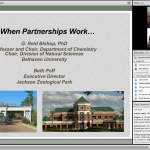
- When Partnerships Work: Creating Community and Civic Engagement through Interdisciplinary Research at an Historic Urban Zoo
-
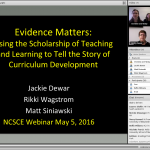
- Evidence Matters: Using the Scholarship of Teaching and Learning to Tell the Story of Curriculum Development
The SENCER Model Series
The SENCER models are curricular approaches to improving science learning and supporting engagement with complex issues. Through the "lens" of a matter or set of matters of public consequence, a SENCER model course or program teaches science that is both challenging and rigorous. SENCER models have clear learning outcomes. They seek transparency in their connection of classroom and related activities and the learning that is desired. Outcomes are assessed continuously. SENCER models reflect the intellectual curiosity of the faculty who developed them. At the same time, they respond to student interests, including personal interests, as well as public or civic ones.
2017 Models
- Field & Natural Science by Dr. Sarah Haines, Professor of Biological Sciences, Towson University
- Ecotoxicology ("Worm Lab") by Dr. Sharon Pochron, Sustainability Studies Program, Stony Brook University
Pearls of Practice: A new series of course modules and short activities
- Sources of Biological Energy by Dr. Linden Higgins, Education for Critical Thinking and Dr. Elizabeth Dolci, Johnson State College
- Answers That Lie in the Questions by Dr. Catherine Hurt Middlecamp, University of Wisconsin-Madison
- What's Radioactive in This Room? by Dr. Catherine Hurt Middlecamp, University of Wisconsin-Madison
- Do I Live in a Food Desert? by Dr. Autumn Marshall, Lipscomb University
- How Big is My Footprint? by Dr. Alison O'Malley, Butler University
- Cell as City by Dr. Gillian Backus, Northern Virginia Community College
- Meet the Beekeepers by Dr. Susan Cusato, Southern Connecticut State University
American Chemical Society Symposium Series Book Publications
SENCER Backgrounders
SENCER Backgrounders are intended to provide intelligent, general readers with high quality syntheses of some of the complex, capacious civic issues that SENCER courses sometimes use to teach basic science. The idea is not to explain the science, but to connect some of what is known, and as yet unknown scientifically, with some of what is at stake civically. A second goal is to identify where scientific knowledge sheds light in such a way as to make civic choices more optimal. Though science is only occasionally the final word on what choice one should make on a complex civic issue, it is worth knowing what science tells us as we deliberate and take into account matters that go beyond science.
Backgrounders cover topics such as synthetic biology, the Human Genome Project, human rights, HIV/AIDS, nanotechnology, and teaching.
View All SENCER BackgroundersEngaging Mathematics Teaching Manuals
Do Now U Partnership with KQED
NCSCE and KQED are partnering on a new pilot project, Do Now U. Do Now U engages undergraduate students in online discussions about current scientific issues through the innovative use of social media. Below are the latest Do Now U posts and KQED resources for creatively engaging your students in science and incorporating Twitter into the classroom.
KQED Resources
- KQED Science - Award-winning science and environment coverage from the Bay Area and beyond, by the flagship Northern California PBS and NPR affiliate
- QUEST - Engaging, relevant science and engineering resources for educators, students, and lifelong learners
- KQED Teach - A fun and social online learning platform for educators to improve their media literacy skills
- Guide to Using Twitter in Your Teaching Practice - Resources for your school community to help jump into using social media, specifically Twitter, as a learning tool
- #TeachDoNow Online Course - Collaborative learning experience in partnership with the National Writing Project open to anyone interested in learning how to use Twitter and other media sharing applications to promote social and civic discourse with students
- Science Communication, Critical Thinking, and Social Media: Sparking Student Dialogue - Recording of webinar with Andrea Aust of KQED and two Do Now U faculty participants Jim Speer and Autumn Marshall that addresses the implementation of social media and simple media production as tools to engage students in civic discourse through KQED’s Do Now U project
Do Now U Posts
-

- Do Now U! Should the US Government Restrict Fertilizer Use to Improve Water Quality? Photo of toxic algae bloom in Lake Erie in October 2011 from NASA
-

- “Is It Morally Justifiable to Kill An Endangered Animal If A Human Life Is At Risk?” Photo Credit: US Department of State IIP P
-

- “Is It More Important to You to Reduce, Reuse, or Recycle?” Photo credit: California Department of Resources Recycling and Recovery (CalRecycle)
-

- “Are Artificially Intelligent Military Systems Worth the Risk?” Photo credit: U.S. Air Force/Master Sgt. Dennis J. Henry Jr.
-

- “Should Genetically Modified Mosquitoes Be Used to Stop the Spread of Zika?” Photo Credit: James Gathany, provided by CDC/ Prof. Frank Hadley Collins, Dir., Cntr. for Global Health and Infectious Diseases, Univ. of Notre Dame
-

- “Will the Flint Water Crisis Motivate More Efficient Responses in the Future?” Photo credit: George Thomas
-
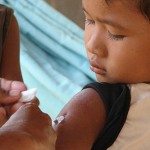
- “Who Should Be Responsible for Funding Global Health Initiatives?” Photo credit: CDC Global (CC BY 2.0)
-

- “How Would You Balance Wildlife Conservation with Economic Growth?” Photo by Jeannie Stafford, U.S. Fish and Wildlife Service
Digital Library
NCSCE and its initiatives publish resources that help educators connect the content they teach to issues of civic importance. We invite you to use and share our Model Courses, Backgrounders, teaching manuals, Journal articles, and meeting presentation slides, posters, and handouts. Resources can be filtered by type, discipline, and civic issue.
Visit Our Digital LibraryHuman Rights
The National Center for Science and Civic Engagement recognizes the connections between human rights and the education enterprise, from the right of education researchers and other scholars to conduct their work without fear of harassment or intimidation to the human right to available, accessible, affordable scientific knowledge of quality and the benefits of scientific progress, with a particular focus on vulnerable populations.
Read More

